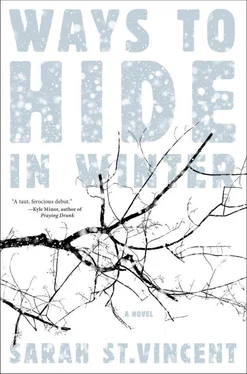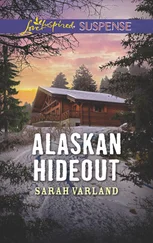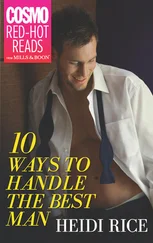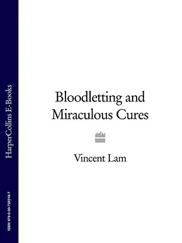“By the way.” As he opened the door, he looked back over his shoulder without turning. I could see twigs clinging to the hood of his coat, a spatter of mud. “You oughta be careful, you know?”
I looked at him blankly.
“Out on the ice,” he said. “I knowed a kid that drowned that way, back before you were born. It ain’t safe.”
I stared at him. By the time I opened my mouth to respond, he was shuffling out, the rifle gripped in his hand.
“Just because you’re used to this place don’t mean it ain’t dangerous,” he murmured, and then the door closed behind him, scraping against its sill.
“Okay,” I said softly, watching through the window as he placed the gun on a rack on the back window of his pickup and climbed stiffly into the cab. A dog clambered to its feet in the backseat and put its paws on the window, panting, seeming to look at me as the truck drove away.
After he had gone, I opened the paper bag and looked into it, counting. They were all there, twenty of them, small and white and oval. I folded the bag again and held it in my hands for a moment, looking down at the floor, then stuffed it into my pocket and walked onto the porch, gathering the ashtrays and flipping the sign on the door so it read CLOSED.
The emergency room lights were harsh. My grandmother lay on her back on a stiff cot, shivering in her gown, looking angry. Her small eyes, focused on nothing in particular, were watering, and her mouth was set in a thin, contemptuous line. Her hand, when I tried to take it, was cold and papery, the skin wrinkled like a newborn dog’s. She pulled it away and aimed her gaze grimly at the ceiling. Her breath came in short rasps, as if she were breathing through a straw.
It was a few days after the stranger had arrived. I had found her that morning, collapsed on her knees next to the couch, clinging to it with her yellowed nails as if she would drown.
“Mrs. McElwain,” the doctor said, holding her file in a closed folder at his side, as if he already knew what it contained. I recognized him from my time with my husband. He was younger than most of the doctors I had met, in his forties, with two daughters who went to a private school the next county over. His curly hair made him look ridiculously, almost insultingly boyish, as if he’d discovered the secret to eternal youth and refused to share it.
My grandmother turned her eyes in his direction briefly before resuming her vague, sour examination of the ceiling tiles. The silence lengthened.
“What?” she rasped finally, gathering that a response was expected of her.
“Your chart shows you were diagnosed with emphysema two years ago.” He spoke in a gentle, reassuring doctor–tone I knew she would hate.
“Yeah?” she said, nearly spitting the word.
“Mrs. McElwain, you need to stop smoking. Immediately. To be honest, I’m amazed you’re not on oxygen already. Because what you’re doing—” he sat on the end of the cot, crossing one leg over the other “—is weakening your lung tissue, which is going to impede your airflow more and more. So, when you get sick, like you did this morning, you’re going to have a very difficult time breathing and could face some serious problems. In fact—”
Her eyebrows contracted and she looked away, raising a hand dismissively.
“Mrs. McElwain, I’m serious. I’m concerned about you.” His eyes were a wide, deep blue. “I know it’s hard, but please consider—”
She muttered something and coughed, still facing the wall.
“I beg your pardon?”
“I said, ‘I don’t know why everybody keeps calling me ‘Mrs.,’” she snapped. “He’s been dead for years.” Although she was a small woman, the gown left her arms and legs bare, exposed in their motionless, lumpen whiteness under the lights. Her breasts hung slack under the fabric.
The doctor stood up, her folder under his arm. “All right, Mrs.—Lydia,” he said curtly. “Just remember what I said, please.” He went out, white coat flapping behind him as if he were some kind of overgrown dove.
“I hate him,” my grandmother said when I helped her into the Jeep afterward. She glared out the window at the parking lot, the bleak exterior of Carlisle Hospital. “Dr. Blue Eyes. Always talks to me as if I were stupid.”
“He’s trying to help you.” I put her seatbelt on and tightened it over her shoulder. “Are you going to do what he said?”
“Bah.”
“Well, are you?”
She scowled at me. “Have you ever tried quitting smoking? After fifty years?”
I paused, my hands on the steering wheel.
“What?” she said after a moment. Something must have shown itself in my expression.
I slipped the key into the ignition.
“Nothing.” I shook my head. “And no, I’ve never tried quitting smoking, but there must be—”
“Take me to that restaurant by the War College. I want dinner. They didn’t feed me at all in that place.”
I closed my eyes briefly, then put my hand on the gear shift. “Okay.”
“Is he the doctor that patched you up?” She turned suddenly and regarded me intently, squinting.
“What?” I looked at her, startled.
“After the accident. You know, when—”
My stomach lurched, but I kept my voice even. “No, Grandma. They took me to Hershey.”
“They did?”
“Yes. In the helicopter. You visited me there.” I remembered the day clearly, my grandmother sitting starchily at a table in the cafeteria until the attendant had locked the brakes on my wheelchair and left. Bending toward me with her gruff expression, she had opened a cup of applesauce and fed me patiently, spoonful by spoonful, as if I were a baby, holding a bottle of water with a straw up to my lips and wiping my mouth carefully with a napkin. It had been my second trip out of my hospital room and the first time I had been able to sit up in the wheelchair for more than two minutes.
“Oh.” She was quiet for a moment, touching her tight gray curls. “Well, that’s a good thing, then. These Carlisle doctors ain’t worth nothing.”
I glanced at her; she didn’t usually use words like “ain’t.” “Dr. Padovese is Catholic, you know.”
She looked over with sharp surprise. “Where’d you hear that?”
“His daughters go to high school at Bishop McDevitt.”
“Is that so?” Considering this, she smoothed her shirt, as if she were still wearing the gown. “I don’t care,” she finally pronounced. “He still ain’t worth nothing to me. When’s the last time he tried to quit smoking after fifty years, that’s what I’d like to know.”
We went to the diner near the Army War College and ate our grilled cheese sandwiches in silence, surrounded by stiff-looking men in civilian clothes. As I watched them, I thought of the stranger with his enthusiastic gestures, the way he leaned forward against the counter as he quizzed me about the park, Centerville, my progress through the book. He had kept coming in, buying a cup of tea with small change and wrapping his long fingers around it as he spoke, sitting tentatively as if afraid of overstaying his welcome but staying anyway. It was hard to imagine a greater contrast with the men who now sat chewing in the booths behind my grandmother, their backs straight and their eyes fixed on something invisible that seemed to hang in midair just beyond their plates.
When we finally arrived home in the darkness, the light on the answering machine was blinking.
“Beth again, I’ll bet,” my grandmother gasped wetly, picking her way toward the overstuffed chair and coughing. “You better call her back this time.”
I picked up the receiver and carried it into the kitchen, dialing Beth’s cell number, the mustard-yellow cord trailing behind me.
Читать дальше












